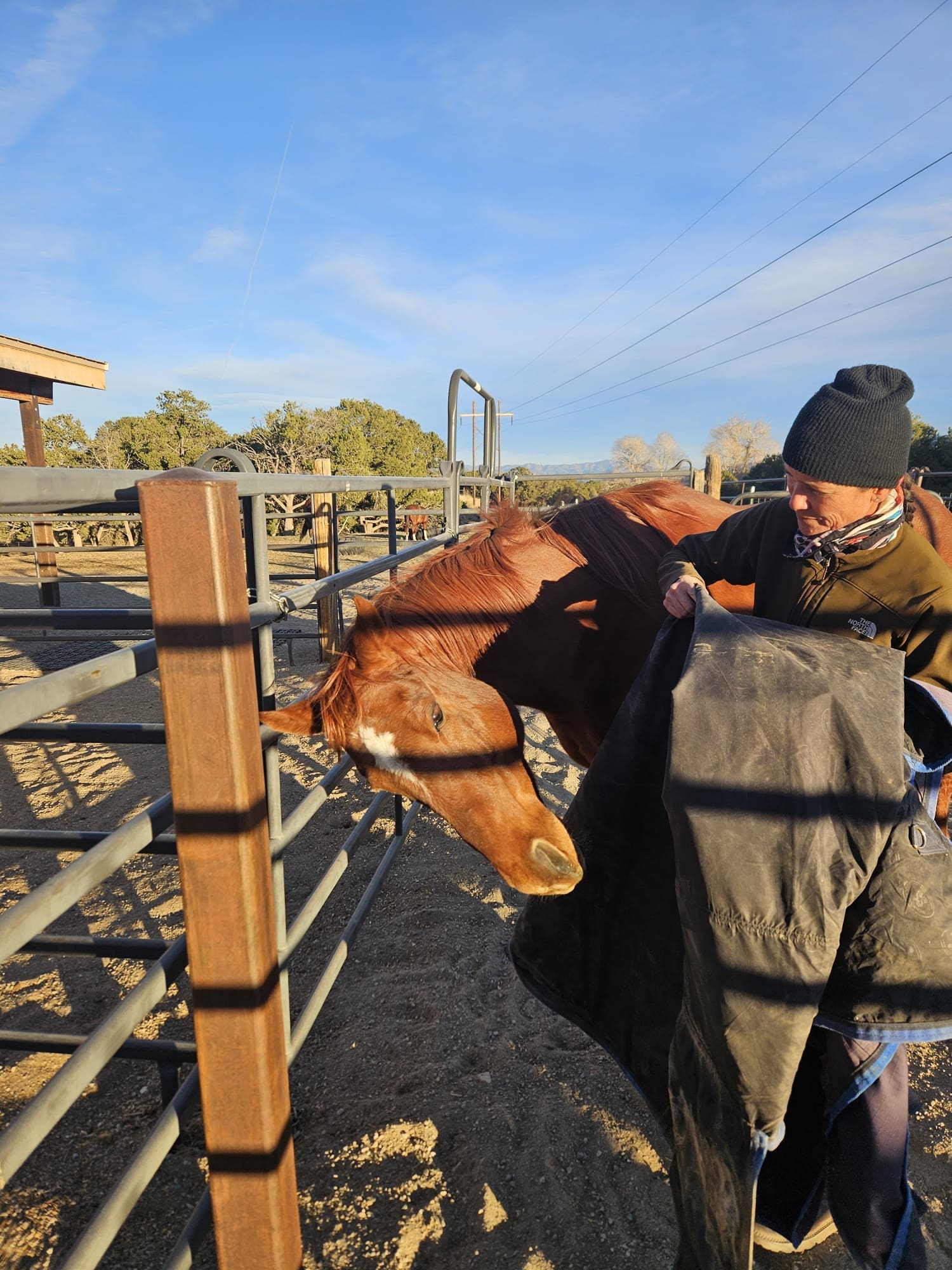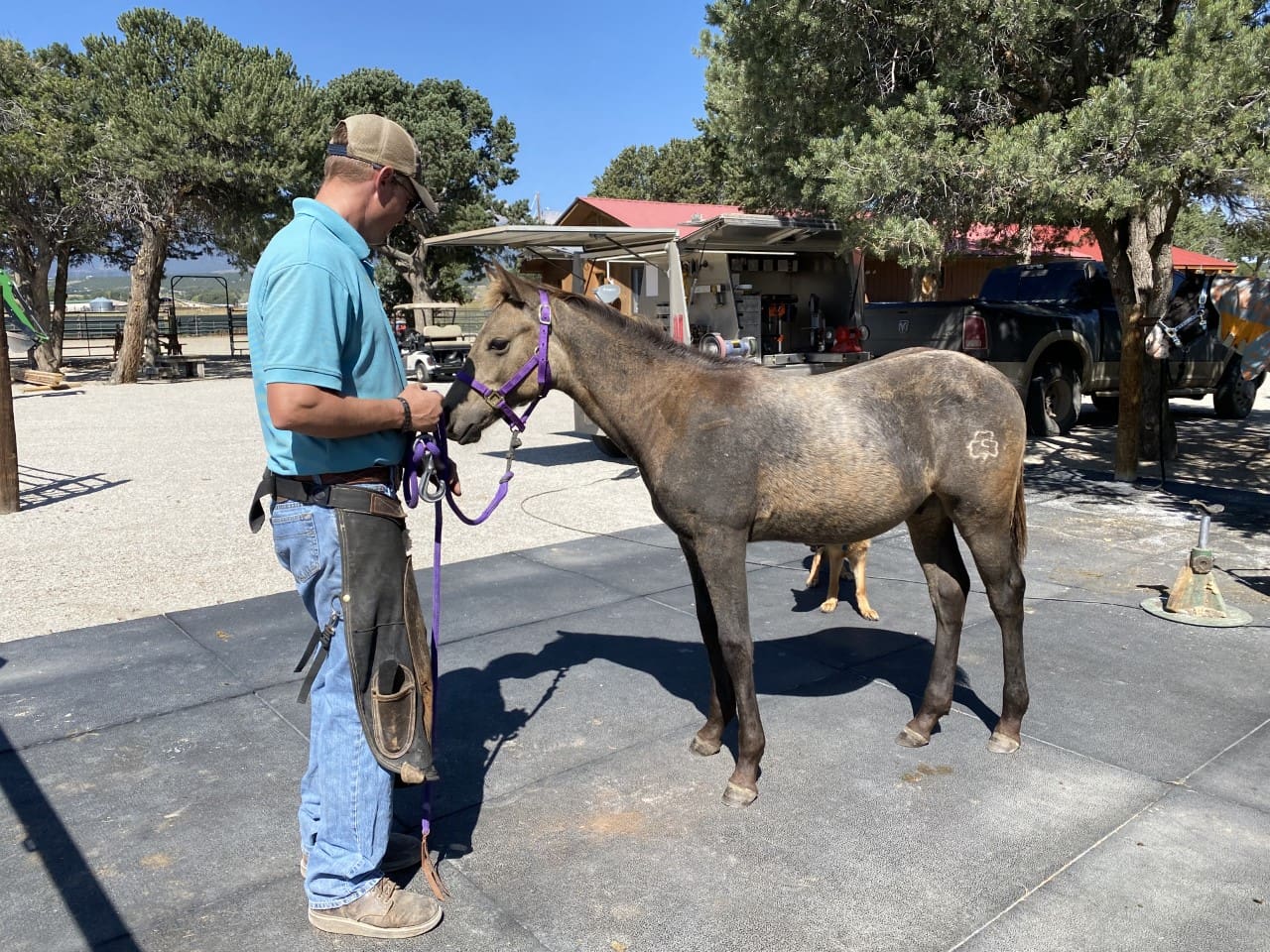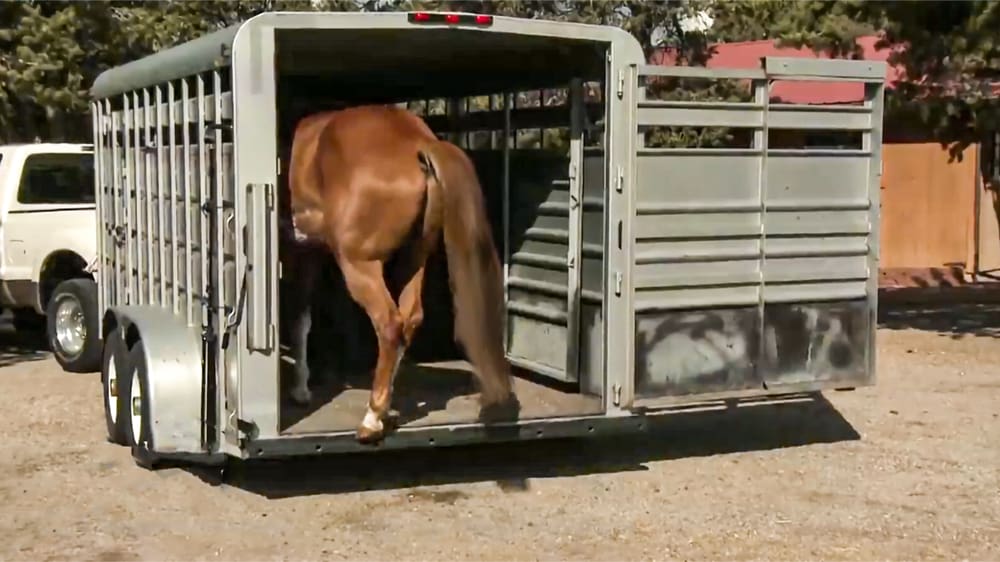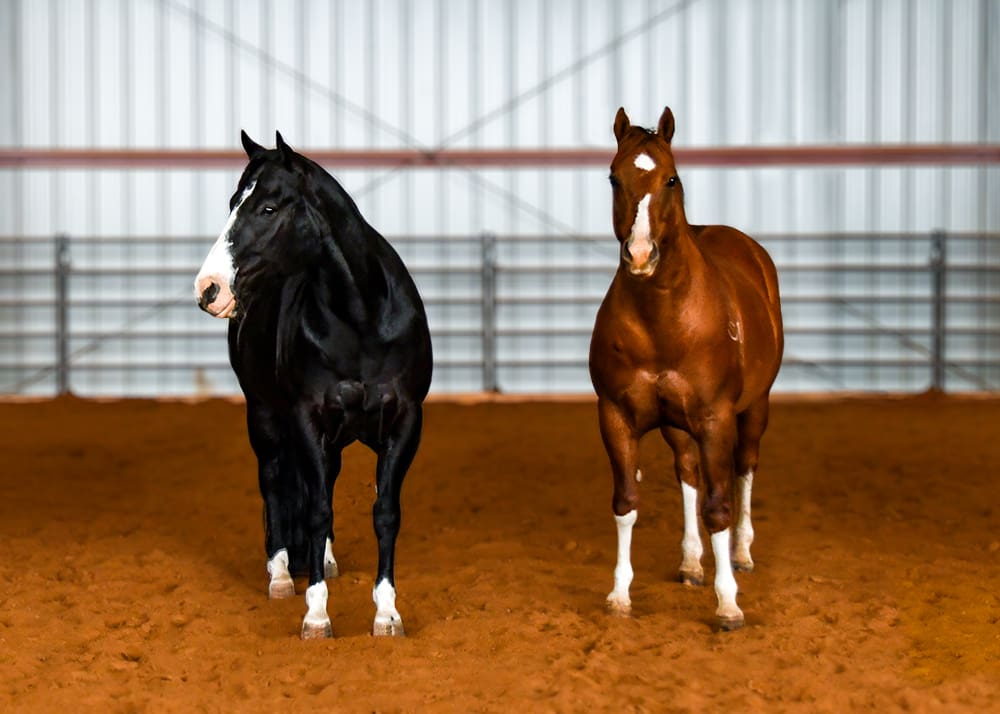Question: Getting a horse to drink enough water has been a challenge for a long time. So long, in fact, that “you can lead a horse to water, but you can’t make him drink” is the oldest English-language proverb still in use, appearing for the first time in the year 1175. We’ve all heard it, and most of us have had first-hand experience trying to disprove it with horses of our own. But what makes it so familiar?
Answer: Chances are, you’re both dehydrated
Dehydration is common among horses, with some studies suggesting that dehydrated horses are more common than hydrated horses, even though the majority of caretakers don’t realize it. Horses are in good company—studies also show that 75% of people are dehydrated themselves. And that isn’t the only thing you have in common with your horse.
Both you and your horse are approximately two-thirds water, which means that when you ride an average-sized, 1000-lb horse, you’re sitting on 660 lbs—80 gallons—of water. Only a third of that water is used outside the cells (in the stomach or blood, for example) and the rest is used within the cells, playing a critical role in every cellular function.
You and your horse also lose moisture constantly, through sweat, urine and other natural processes. Without an adequate supply of water—maybe he’s on the trail and can’t drink, or maybe he simply won’t drink the water you provide—your horse’s body compensates by shuttling fluid from one area to another. Nature has decided that overheating is a more immediate threat than dehydration, so he sweats even when it means robbing fluid from cellular processes that quickly begin to suffer.
Then why doesn’t he just drink?
As dehydration begins to impact performance, your similarity to your horse begins to fade away. Your thirst instinct is triggered much sooner than your horse’s because of chemical differences in our sweat. Increased sodium concentration in blood (horse or human) triggers thirst, but because he loses so much more sodium in his sweat than you do, he doesn’t even realize he should be thirsty until he’s already lost about 32 lbs of body weight. By then, dehydration has already become a problem, your horse isn’t feeling his best, and colic is much more likely.
Introduce a thirst trigger
When it comes to re-hydration, we can simplify complicated chemical processes into two areas: replacing lost water, and replacing lost electrolytes. (Electrolytes are essentially the same elements found in seawater: sodium, potassium, calcium, phosphorus and magnesium. Without them, muscles and cells can’t function.)
This is one of the biggest reasons you see salt blocks in every stable and pasture. When your horse licks salt, he begins to restore depleted sodium and chloride electrolytes. Perhaps more importantly, salt triggers his thirst instinct, and he begins to replace lost water. But if you’ve had a horse reject his salt lick, you already know the next problem: horses are notoriously picky eaters, and many horses dislike traditional salt and mineral blocks. If he doesn’t like the taste, he doesn’t lick the salt. If he doesn’t lick the salt, he doesn’t drink. And if he doesn’t drink, he doesn’t rehydrate.
A thirst trigger he won’t reject
Frustrated by horses rejecting processed salt and mineral blocks, many horse owners have rediscovered natural salt mineral licks. The major brands come from two sources: Himalayan brands, mined and shipped from Pakistan, and Redmond Rock, mined and shipped from Central Utah. Both sources provide natural rocks mined from ancient sea beds, which means your horse gets natural sea salt along with more than 60 trace minerals, in the same ratio as seawater, that become excellent building blocks in natural electrolyte replacement. More importantly, horses prefer the taste of natural salt mineral licks—they go back to the rocks again and again, triggering their natural thirst response, often putting an end to dehydration.
We may not be able to make a horse drink, but when we understand why, and provide natural mineral salt in a form they actually enjoy, we can work with nature and help our animals avoid dehydration and the serious health problems that come with it.
FIND OUT MORE>> http://www.redmondequine.com/hydratedhorse
Copyright ©Julie Goodnight 2000. All Rights Reserved. No part of this website may be reproduced without owner’s express consent.



